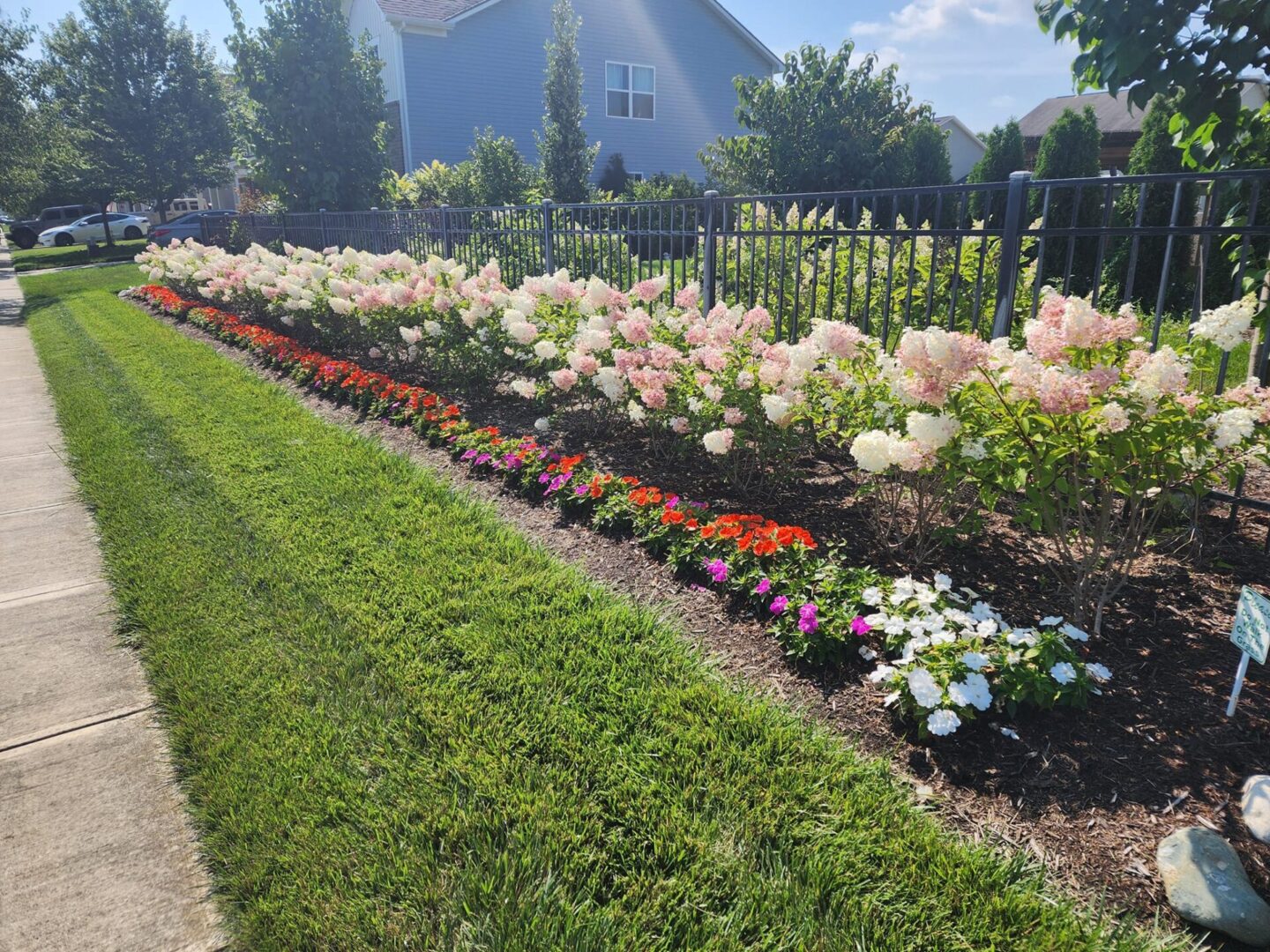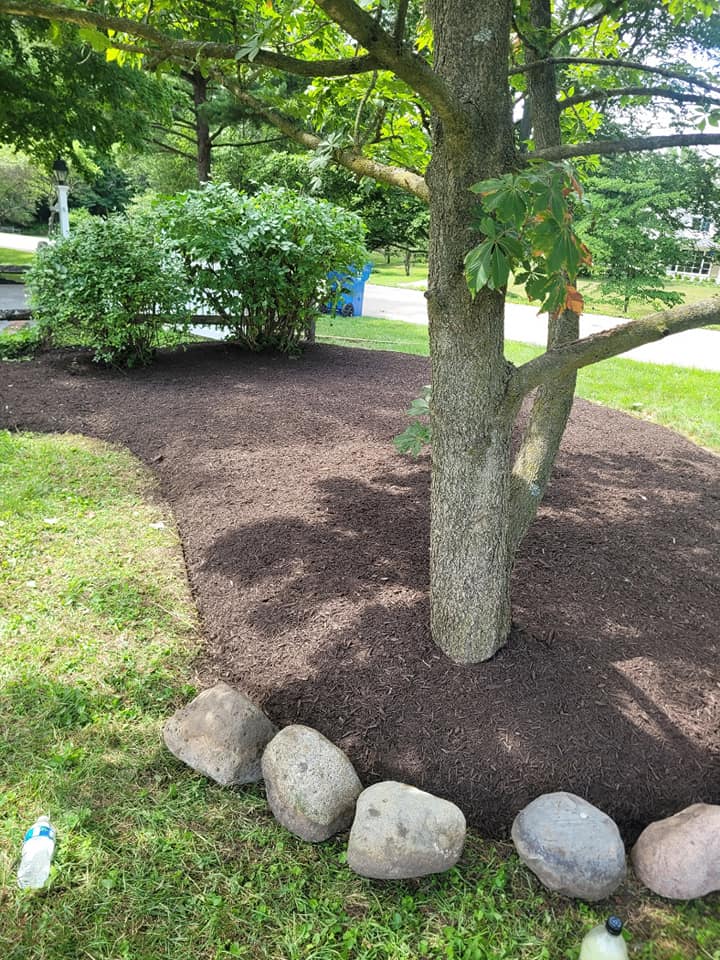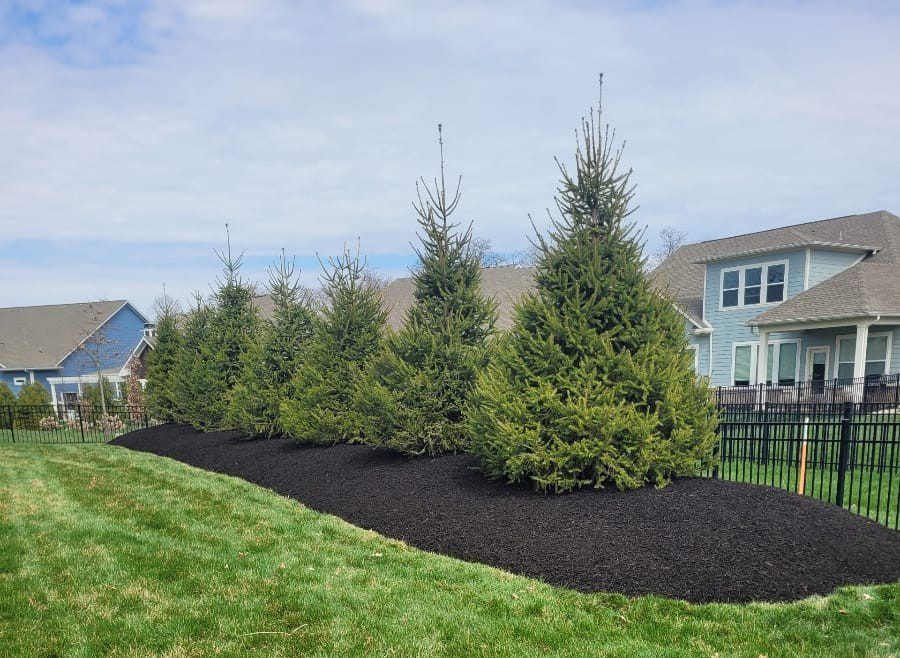Mulching offers numerous benefits for gardens and landscapes, including improved soil health, weed suppression, water conservation, and temperature regulation.
Here's a more detailed look at the advantages of mulching
Soil Health and Improvement:
Moisture Retention:
Mulch helps the soil retain moisture by reducing evaporation, meaning plants need less frequent watering.
Soil Temperature Regulation:
Mulch acts as an insulator, keeping the soil cooler in the summer and warmer in the winter, protecting plant roots from temperature extremes.
Erosion Prevention:
Mulch protects the soil from erosion by reducing the impact of rain and wind on the soil surface.


Soil Structure:
Mulch improves soil structure, especially when organic mulches decompose, adding organic matter and improving water infiltration and aeration.
Nutrient Enhancement:
As organic mulches decompose, they release nutrients into the soil, enriching it and improving plant health.
Weed Suppression:
When pre emergents are used mulch can act as a barrier, helping to prevent weed seeds from germinating.
Reduced bed Maintenance:
Fewer weeds means less time and money spent on bed maintenance.
Neat and Well-Maintained Look:
Mulch can make a garden look tidy and well-maintained, enhancing the overall landscape design.
Types of Mulch:
- Organic Mulch: Made from natural materials like wood chips, bark, straw, or leaves.
- Inorganic Mulch: Made from materials like gravel, stone, or plastic.

